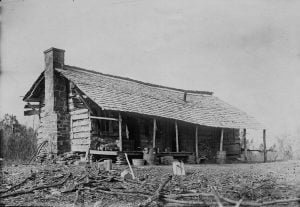Provisions Spoiled
Late in the month of July we discovered that our flour, like the surplus manna in the wilderness, bred worms. It was, indeed, a difficult matter to preserve provisions in a sweet and sound condition during the long, dry, and intensely warm summer seasons in that country. We had known that the weevils would consume the unground grain that might be stored away in the granary, but we had never heard that the meal and flour would become foul and unfit for use. Our flour was in barrels, had been purchased in Cincinnati in the month of April preceding, and … Read more

